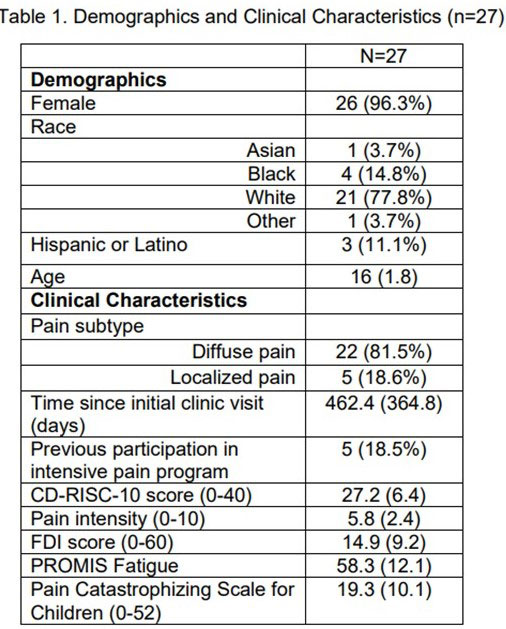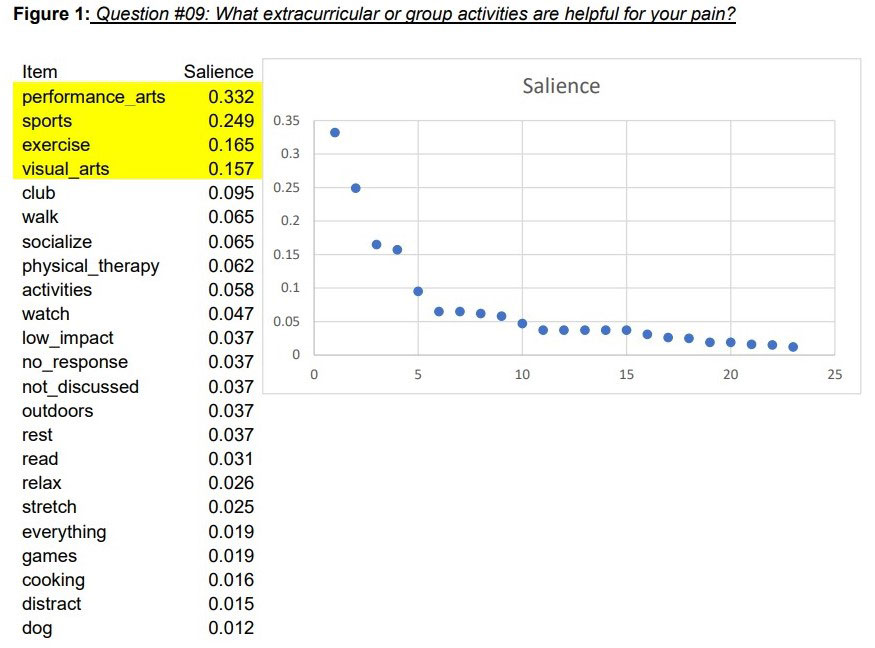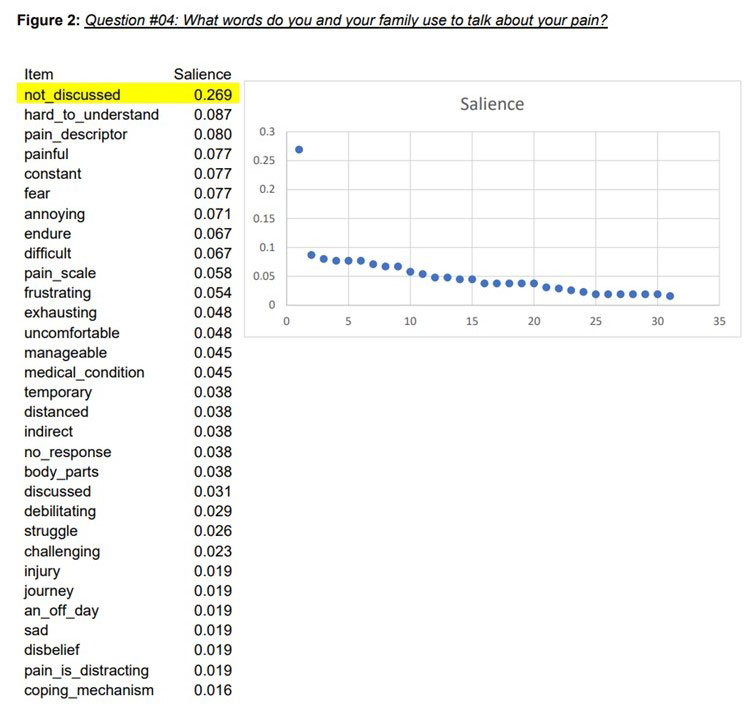Session Information
Session Type: Abstract Session
Session Time: 4:30PM-6:00PM
Background/Purpose: Youth with chronic musculoskeletal pain (CMP) learn pain-coping strategies and build resilience through cognitive behavioral therapy (CBT). In order to expand therapeutic options for youth with CMP, we need to improve our understanding of coping strategies they find most helpful or utilize most often. Thus, we aimed to identify salient coping strategies among youth with CMP established in a pediatric rheumatology pain clinic, through the freelisting method. The objective was to determine key knowledge, attitudes and practices regarding pain-coping to help inform the adaptation of resilience coaching programs for this patient population.
Methods: This was a qualitative study, complemented by retrospective chart review, of English-speaking youth with CMP, aged 12-18 years, presenting for a follow-up visit in a pediatric rheumatology subspecialty pain clinic between December 2020 and September 2021. All enrolled subjects participated in an interview session including: freelisting, probing questions, completion of the Connor-Davidson Resilience Scale 10-item (CD-RISC-10), and items to elicit study feedback. The freelisting questionnaire component, developed with the input of mixed-methods research specialists, elicited brief (1-2 word) responses to 12 questions about what activities, words, and sources of support youth find helpful for their pain. Audio recordings of the interviews were transcribed and Anthropac cultural domain analysis software was used to create salience scores (a composite measure accounting for item frequency and order) among responses to each freelisting question.
Results: Twenty-seven subjects completed the interviews (Table 1). Mean resilience level was 27.2 (+/-6.4). Individual-level coping strategies included “rest,” “distraction,” and “relaxation” (including “music”). Others reported “endure” as their response. Resources in school settings included “focus” and “leaves” as pain-coping strategies.
Professional networks included doctors, physical therapists, and psychologists. Personal networks included parents, teachers, siblings, and guidance counselors. Helpful group activities included: “performance arts,” “sports,” “exercise,” “visual arts,” and “clubs” (Figure 1). “Not Discussed” was the single salient term identified for how participants communicate their pain to family (Figure 2). While varied, additional explanations included avoiding thinking about their pain to not exacerbate symptoms, preferring to cope with pain alone, or feeling that the situation can’t be resolved by talking about it.
Most respondents enjoyed participating in the freelisting exercise. Comments included that the freelisting exercise was interesting to complete and a good way to generate answers.
Conclusion: The most salient coping strategies amongst youth with CMP included creative arts, exercise, and group activities, whereas participants commonly identified little communication with family members about pain. Future development of resilience coaching programs for this patient population should consider incorporation of creative arts, social interaction, and developing effective communication skills.
To cite this abstract in AMA style:
Gmuca S, Stryker D, McGill M, Eriksen W, Cronholm P. Salient Coping Strategies Among Youth with Chronic Musculoskeletal Pain [abstract]. Arthritis Rheumatol. 2022; 74 (suppl 9). https://acrabstracts.org/abstract/salient-coping-strategies-among-youth-with-chronic-musculoskeletal-pain/. Accessed .« Back to ACR Convergence 2022
ACR Meeting Abstracts - https://acrabstracts.org/abstract/salient-coping-strategies-among-youth-with-chronic-musculoskeletal-pain/



